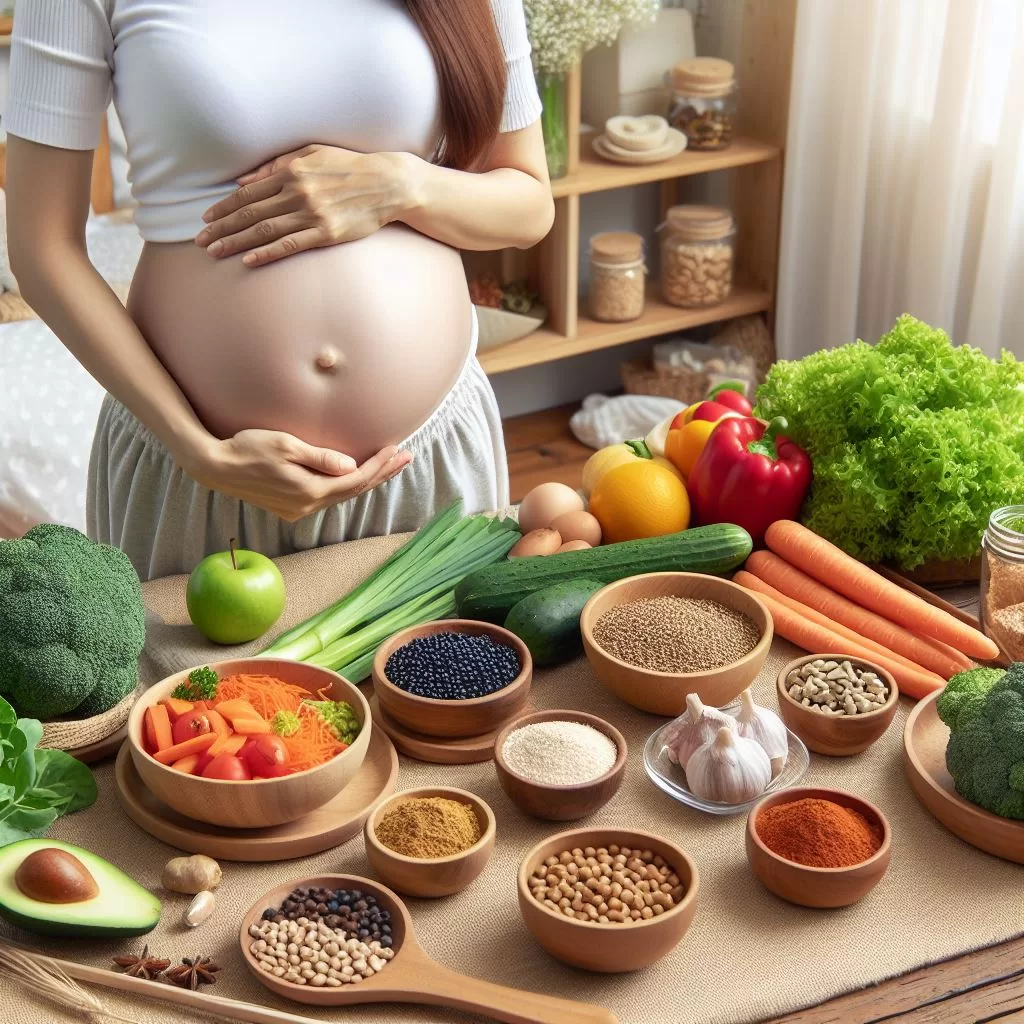Eating a healthy diet is important for everyone, but it is especially crucial for pregnant women. A nutritious diet during pregnancy provides essential nutrients that support the growth and development of the baby, while also keeping the mother healthy.
By incorporating a variety of healthy foods into their diet, pregnant women can enhance their overall well-being and ensure the best possible outcomes for both themselves and their babies.
In this article, we will explore the numerous benefits of healthy eating during pregnancy and provide recommendations for a well-balanced diet specifically tailored for expectant mothers.
Importance of Nutrition During Pregnancy:
During pregnancy, a woman’s body goes through significant changes to support the growth and development of the fetus. These changes can place additional demands on the mother’s nutritional status, making it crucial to consume a healthy diet.
Proper nutrition during pregnancy can:
-Promote optimal fetal development.
-Reduce the risk of birth defects.
-Maintain a healthy weight gain during pregnancy.
-Prevent pregnancy complications.
-Enhance the mother’s energy levels.
-Reduce the risk of gestational diabetes and preeclampsia.
-Improve the mother’s immune system.
-Increase the chances of a healthy delivery.
Essential Nutrients for Pregnant Women:
Meeting the nutritional needs of pregnant women requires paying attention to key nutrients that play a vital role in fetal development. Including the following nutrients in the diet can ensure a healthy pregnancy:
-Folic Acid:
Folic acid, also known as folate, is crucial for the healthy development of the baby’s neural tube. Adequate folic acid intake before and during the early stages of pregnancy can significantly reduce the risk of neural tube defects such as spina bifida. Good sources of folic acid include leafy green vegetables, citrus fruits, beans, peas, and fortified bread and cereals.
-Iron:
Iron is an essential mineral that helps in the production of red blood cells, which carry oxygen to both the mother and the baby. During pregnancy, the body’s iron requirements increase to support the baby’s growth. Iron-rich foods include lean meats, poultry, fish, beans, lentils, spinach, and iron-fortified cereals.
-Calcium:
Calcium is necessary for the development of the baby’s bones and teeth. Pregnant women should aim to consume adequate amounts of calcium to prevent deficiencies. Good sources of calcium include dairy products, leafy green vegetables, fortified plant-based milk alternatives, and calcium-fortified juices.
-Protein:
Protein is essential for the growth and repair of tissues in both the mother and the baby. Including protein-rich foods in the diet can help ensure proper cell growth and development. Good sources of protein include lean meats, poultry, fish, eggs, dairy products, beans, lentils, and tofu.
-Omega-3 Fatty Acids:
Omega-3 fatty acids, particularly DHA (docosahexaenoic acid), are crucial for the development of the baby’s brain and eyes. Consuming foods rich in omega-3 fatty acids can contribute to the baby’s cognitive and visual development. Good sources of omega-3 fatty acids include fatty fish (such as salmon and sardines), walnuts, chia seeds, and flaxseeds.
Healthy Diet for Pregnant Women:
A well-balanced diet during pregnancy should include a variety of nutrient-rich foods to meet the specific needs of the mother and the baby. The following dietary recommendations can help pregnant women maintain optimal nutrition:
1. Eat a Rainbow of Fruits and Vegetables:
Different-colored fruits and vegetables provide a wide range of vitamins and minerals that are essential for a healthy pregnancy. Aim to include a variety of colors in your diet, such as leafy greens, orange vegetables, berries, and citrus fruits.
2. Choose Whole Grains:
Whole grains are excellent sources of fiber and essential nutrients. Opt for whole-grain bread, pasta, brown rice, oats, and quinoa to ensure a steady supply of energy and nutrients.
3. Include Lean Protein Sources:
Protein is crucial for the growth and development of the baby. Choose lean sources of protein, such as skinless poultry, fish, legumes, and tofu. If you follow a vegetarian or vegan diet, ensure you get enough protein from plant-based sources.
4. Consume Healthy Fats:
Healthy fats, such as those found in avocados, nuts, seeds, and olive oil, are important for fetal brain development. However, it is essential to consume them in moderation, as they are high in calories.
5. Stay Hydrated:
Adequate hydration is essential during pregnancy. Aim to drink at least eight glasses of water or other healthy beverages each day to support your body’s functions and ensure proper circulation.
6. Limit Processed and Sugary Foods:
Avoid or limit the consumption of processed foods, sugary snacks, and beverages. These foods offer little nutritional value and can contribute to excessive weight gain and gestational diabetes.
7. Take Prenatal Supplements:
Even with a healthy diet, it can be challenging to meet all the nutritional requirements during pregnancy. Consult your healthcare provider about taking prenatal supplements, such as folic acid, iron, calcium, and omega-3 fatty acids, to ensure you are meeting your body’s needs.
Conclusion:
Adopting a healthy eating plan during pregnancy is crucial for both the mother and the baby. By consuming a variety of nutrient-rich foods and following a balanced diet, pregnant women can provide optimal nutrition for their babies’ growth and development. Remember to consult with a healthcare provider or registered dietitian for personalized nutrition advice during pregnancy. Nurture your body and nourish your baby by embracing a healthy diet that supports both of you during this special time.

